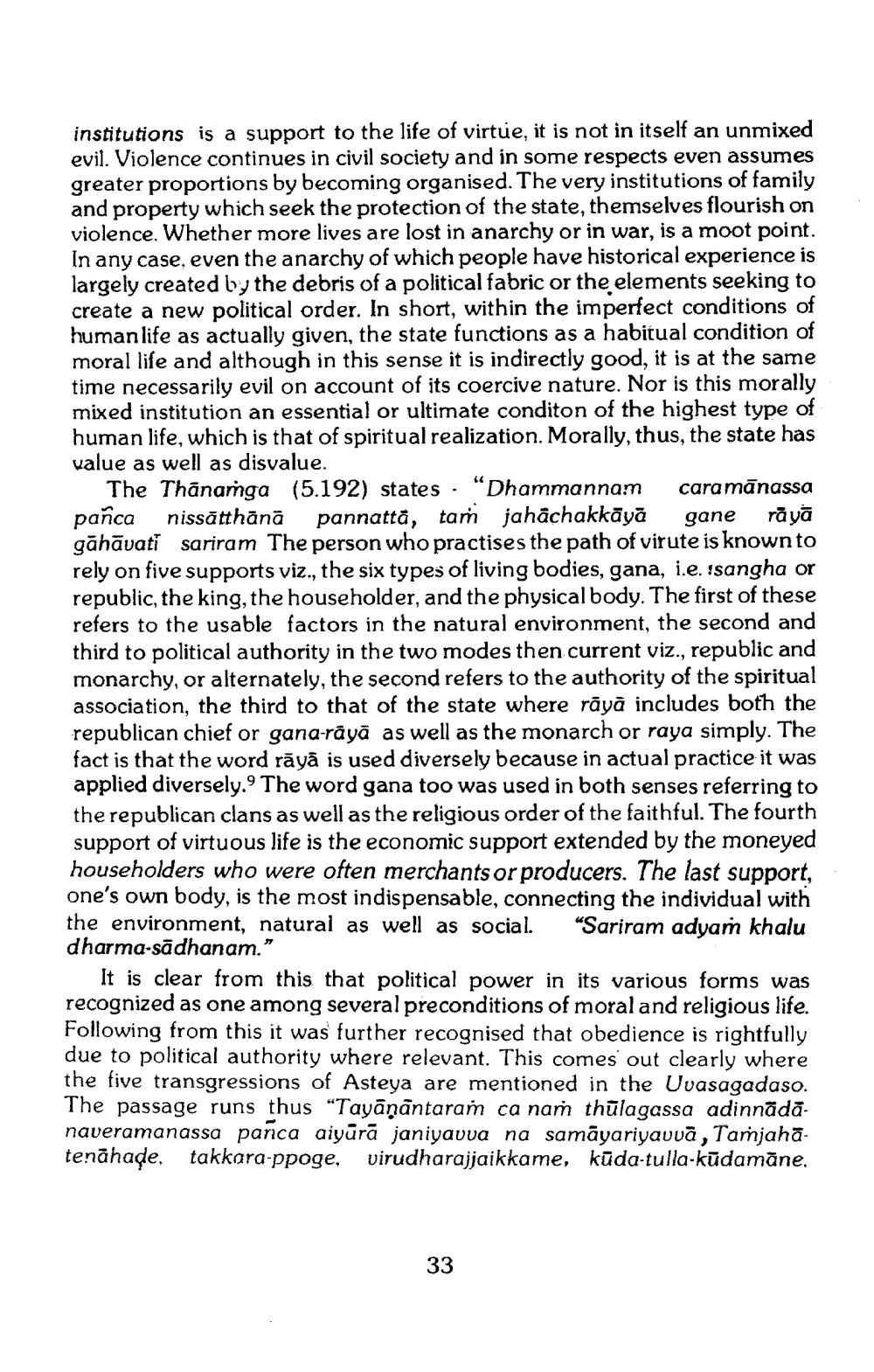________________
institutions is a support to the life of virtue, it is not in itself an unmixed evil. Violence continues in civil society and in some respects even assumes greater proportions by becoming organised. The very institutions of family and property which seek the protection of the state, themselves flourish on violence. Whether more lives are lost in anarchy or in war, is a moot point. In any case, even the anarchy of which people have historical expe largely created by the debris of a political fabric or the elements seeking to create a new political order. In short, within the imperfect conditions of human life as actually given, the state functions as a habitual condition of moral life and although in this sense it is indirectly good, it is at the same time necessarily evil on account of its coercive nature. Nor is this morally mixed institution an essential or ultimate conditon of the highest type of human life, which is that of spiritual realization. Morally, thus, the state has value as well as disvalue.
The Thānanga (5.192) states · “Dhammannam caramānassa panca nissātthānā pannattā, taṁ jahāchakkāyā gane rāyā gāhāvati sariram The person who practises the path of virute is known to rely on five supports viz., the six types of living bodies, gana, i.e. Isangha or republic, the king, the householder, and the physical body. The first of these refers to the usable factors in the natural environment, the second and third to political authority in the two modes then current viz., republic and monarchy, or alternately, the second refers to the authority of the spi
ciation, the third to that of the state where rāyā includes both the republican chief or gana-rāyā as well as the monarch or raya simply. The fact is that the word rāyā is used diversely because in actual practice it was applied diversely. The word gana too was used in both senses referring to the republican clans as well as the religious order of the faithful. The fourth support of virtuous life is the economic support extended by the moneyed householders who were often merchants or producers. The last support, one's own body, is the most indispensable, connecting the individual with the environment, natural as well as social. "Sariram adyam khalu dharma-sādhanam."
It is clear from this that political power in its various forms was recognized as one among several preconditions of moral and religious life. Following from this it was further recognised that obedience is rightfully due to political authority where relevant. This comes out clearly where the five transgressions of Asteya are mentioned in the Uvasagadaso. The passage runs thus “Tayānāntaram ca nam thūlagassa adinnādā. naveramanassa panca aiyūrā janiyavva na samāyariyanvā, Tarjahā. tenähade, takkara-ppoge, virudharajjaikkame, kūda-tulla-kūdamāne.
33




